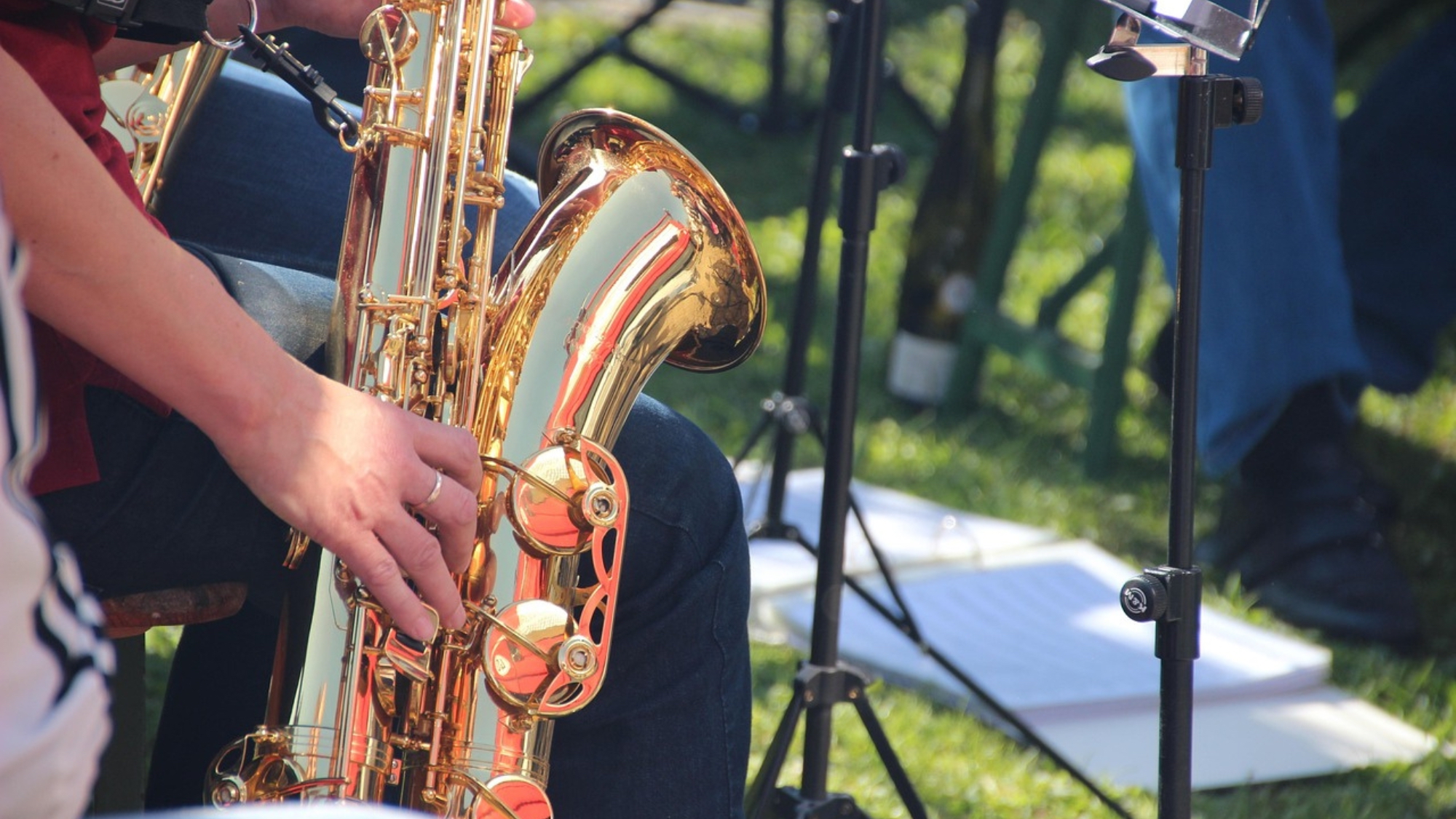Originally published January 2000
I know that I have answered that question in many different ways. Sometimes I said, “I teach music,” and other times, “ I teach band.” When I stopped to think before answering then I would say, “I teach kids. I teach kids about life and I get to use music to do it!”
WIBC 29 is now history, and it was fabulous. There were nearly 600 hundred high school students with only a minute amount of trouble. There were over a hundred directors there with a goal of learning more and supporting their students. There were absolutely fabulous concerts performed by very talented musicians. There were six awesome and awe-inspiring conductors. There was a world-class soloist. WIBC 29 was so much and yet for me much of what I remember revolves around one girl and how someone failed her.
In one of the Honor Bands, there was a special tenor sax player. She decided to talk while a conductor was talking. He told her she was being rude. It only got worse. I became involved when I was informed that she was now reading a book rather than paying attention to or playing for this particular conductor.
I caught myself before I asked her if she would do this in her own band room for her own director. I am glad that I did not ask that question because I am pretty sure she would have said yes. This was not a new behavior; this was a learned behavior because one day she tried it and got away with it. I do not know her director, and I really do not want to know her director. At this point, to be honest, I do not even remember her name, but she is important because she represents someone that we, the music teachers/directors of the world, have failed.
If our goal is only to teach the music to the students in front of us, then we are missing the point and we really should not bother. If we fail to give the students in front of us the tools and behaviors they need to be successful in life, then we have failed them. If we do not correct a wrong behavior because we are more concerned about the music or the contest/concert that is coming up, then we have failed those students.
As more and more music programs are fighting for support and even for their very existence, we should have all of the answers. We do have all of the answers; we simply do not always use them wisely. Sometimes we just get caught up in the moment for the sake of the concert or the contest and we forget about what is right for the student. Howard Gardner put forth the theory that there were 7 types of intelligence. These cover everything from linguistic to logical-mathematical from kinesthetic to musical. I think that two of the often-overlooked ones are interpersonal and intrapersonal.
The interpersonal side would look to the good of the whole and see how my actions were either benefiting or hurting the group as a whole. I would be able to see myself as a leader or as a follower. The young lady from WIBC would have seen how her actions were hurting the group as a whole. She would have learned that manners and courtesy are important and not just a pick and choose sort of thing. The young lady from WIBC had lessons to learn, and one of us missed the opportunity to do the teaching.
The intrapersonal side allows us to experience the deep feelings that we have inside. This is why many of us were so taken up with band and why so much music is written. This is an emotional outlet for us to use. In the Directors’ Reading Band, listening to Sam Hazo tell us about “Bridges” which he wrote in a week for the members of the Virginia Tech Band after the tragic shootings there, allowed everyone in the room to feel the emotions involved. The song gave us the outlet we needed to express those emotions. Is it any wonder that so many songs have come from wartime? When you have the opportunity, read the forward to David Shafer’s “Purple Heart.” The young lady from WIBC may have experienced a deep emotional feeling, and she possibly did not know how to react to it. Maybe she felt nothing at all. The young lady from WIBC had lessons to learn, and one of us missed the opportunity to do the teaching.
In our band, choir and orchestra rooms we can teach these lessons better than in any other classroom in the school. In these rooms, the kids come to find the right way to use these intelligences. They come to these rooms because their needs are not being met in other ways. We are the people that they turn to; we are the people they trust to teach them the lessons they need to learn. We are the people they trust to tell them the truth about life. If we miss the opportunities, who is going to do it? Do you begin to see that even if the concert/contest day is rapidly approaching there are students whose very future is at stake?
Was it the guest conductor’s job to teach her that day? He did; he corrected a wrong behavior. It should never have gotten that far. Was it my job to teach her that day? Probably, so I tried. When she asked how to get her book back, I told her to let me know when she had apologized to the conductor. It’s almost 2 weeks after WIBC concluded; I still have her book.
As educators/directors/teachers we need to remember that we are the examples that the students will emulate. We are the ones they will follow. Our examples are the ones they will remember. Let’s make sure that we look carefully at ourselves, as painful as that may be, and correct the things we do not want others to follow. Have we ever allowed a student to study during rehearsal because they had a big test and they would only do it when they were not supposed to be playing? If we have, then we reinforced that we are important only when we are playing and our support of the others in the band means nothing. Have we ever allowed someone without their instrument to sit off to the side while the rest of us work? Then we reinforced their ability to manipulate us whenever it was convenient. Have we ever allowed talking to go on when we knew we should have taught manners? If we have, then we have missed at least one great teaching opportunity. It wasn’t the music that needed teaching; it was the student.
If we want musical performances, then we must conduct musically. If we want students to be prepared, then we must be prepared. If we want our students to be prompt, then we must begin and end our rehearsals promptly. If we want courtesy, then we must be courteous to our students and demand it back from them. We must model our desires in what we show to the students.
It is often painful to look at ourselves and evaluate what we do. We can get really good at rationalizing things because of our situations and how busy we are, and … and… Somewhere down the road, it comes back to haunt us, or worse yet, it hurts one of those who have been entrusted to our care for instruction. We know we made a mistake when we see one of our own in trouble.
Is our band always ready to go? Are we always ready to go? Are the kids always waiting until the last minute? How about us? Do the kids only seem to get serious about it when it gets right down to the wire before a concert or contest? How has our intensity been? Did it change the closer we got to concert time, or did we introduce a new piece with the same degree of intensity we would need in the last week? Our kids are good at reading us. What we show them is important. Our actions speak volumes and they speak louder than our words.
Sometimes the old cliche is only too true, “They won’t care what you know until they know that you care.” Let your kids know that you care by showing them you are concerned about how they will turn out in life. You know they will face rules in real life; you know there will be consequences if they choose to break those rules. Train them now so you won’t hear complaints later.
Are we concerned about the future of our world? There is no better place to leave your mark on the future than to teach those who will live and make the future. Make sure that you are doing it responsibly. Do not take short cuts or you will teach that shortcuts are acceptable. Do not play favorites, because then we will only continue to allow prejudice to happen. Teach at the time that the lesson happens, do not put off for another day what you should have done at the moment. Do not forget the student is more important than the music! That is after all whom we teach.
As I look back on that moment at WIBC, I probably would do it differently. I would spend a bit more time with that young lady. I would try to do some more teaching by walking her to the conductor and listening to her apology. I would follow up with her one more time. I missed my chance; someone else missed his/her chance earlier. I still have her book. Let’s try not to miss again! Ultimately it is not about the music on the stands; it is about the music-makers in the chairs. Remember we teach kids about life; music is our tool!





